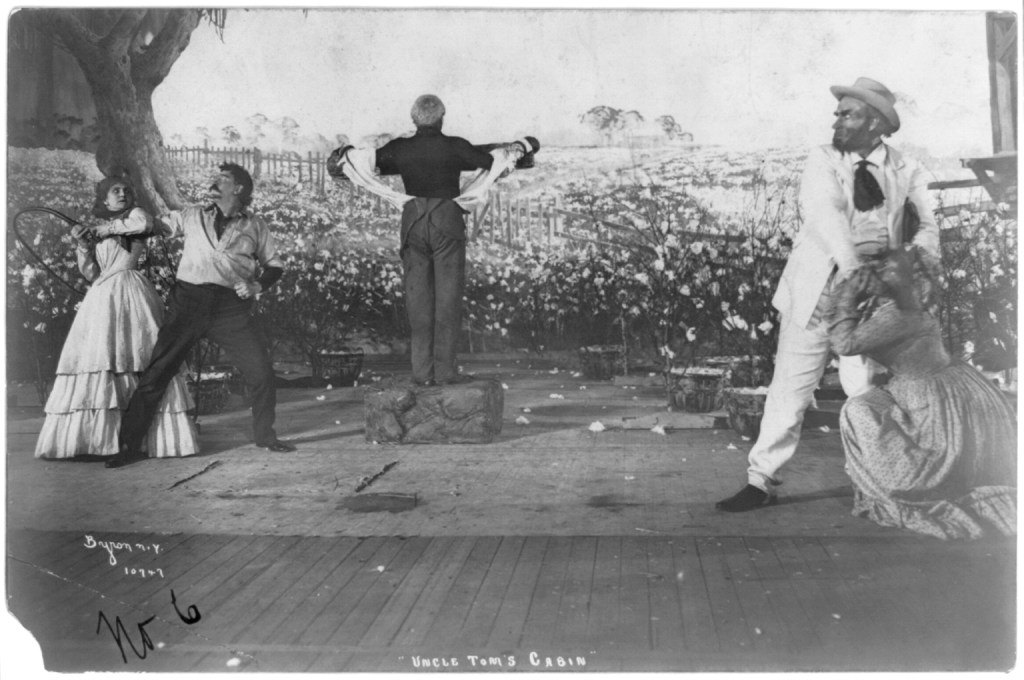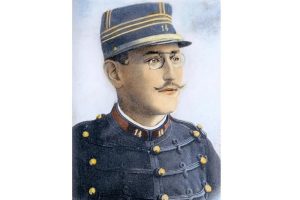In The Atlantic, Jordan Kisner reviews Geraldine Brooks’s new novel, Horse, which follows two young Black men — one a 19th-century groom and the other a 21st-century Londoner who has moved to America to work on his dissertation on “stereotypes of Africans in British painting.” In the novel, Theo, the Londoner, is skeptical of the ability of white artists to represent Black figures as fully human.
“This,” Kisner notes, “is a self-conscious—and bold—inclusion for a novel with not one but two young Black male protagonists written by a 66-year-old white Australian woman . . . Neither is this her first time writing across cultural divides. Her first nonfiction book, Nine Parts of Desire (1994), was about the ‘hidden world of Islamic women.’ Her 2011 novel, Caleb’s Crossing, is about a young white Puritan girl’s friendship with Caleb Cheeshahteaumauk, a character inspired by a Wampanoag man of the same name who was the first Native American to graduate from Harvard, in 1665.”
More: “This kind of venture has become trickier in the past 10 years. The publishing world has been racked by overdue debate about cultural appropriation and whether and how white authors should write characters from other racial or ethnic backgrounds,” but Brooks “signals to us that she enters her latest project knowingly. She’s read up on the Discourse. A gauntlet has been thrown—white artists can’t do justice to Black subjects—and she will take it up.”
She doesn’t succeed, Kisner writes, largely because the two Black characters are too good to be human. They don’t fail and, therefore, have no opportunity to change:
Theo and Jarret are described, at every turn, as exemplary, socially and spiritually. They are handsome, tall, gifted, and educated (Jarret takes an opportunity to learn how to read). Animals instinctively trust them (Theo and his dog are exquisitely attuned). They are constantly swallowing their rage. They are always patiently explaining something. Where others stumble, they are steady . . . I read to the end wanting Horse to right itself, to be one of those books that achieve the creative and ethical intersubjectivity that signals great fiction. Brooks gives Jarret and Theo just enough spark to make us wish she’d also given them a more deeply imagined, nuanced, and substantial portrayal. Each ends as a trope: one a man who triumphs against all odds, the other a martyr. Brooks’s sympathies are evidently with them, and so are ours. But sympathy seems like an inadequate achievement in a project like this, which takes as its subject the worst consequences of white Americans’ failure to recognize the full humanity of Black people. Sympathy has a way of falling short, aesthetically as well as politically—it is a frail substitute for the knotty, vital insight that can emerge from sustained immersion in another psyche, another soul. If readers feel sorry for Theo and Jarret without really needing to believe in them as whole beings, what exactly do their portraits accomplish?
I haven’t read the book, but Kisner’s criticism rings true. I wonder, though, what critics would write if Brooks had given her two Black characters serious flaws. What would the reaction be if she made them bitter and vindictive, selfish, paranoid, or, heaven forbid, guilty of stereotyping other races themselves? Likely Brooks would be tried and found guilty of much more than failing aesthetically in the court of social media.
The larger problem is not an insufficient awareness of “the worst consequences of white Americans’ failure to recognize the full humanity of Black people,” as Kisner writes, but the lack of freedom writers have to explore imaginatively what the psychic consequences of racism are or might have been. Those consequences have already been determined by the self-appointed guardians of public discourse and are not up for discussion. So, the only options are to play it safe, as Brooks seems to have done, or avoid the topic altogether.
In other news
We live in an age of emotional overstatement, Caitlin Macy writes in the Wall Street Journal: “From social media to job applications, the pressure to declare our feelings in public is turning us into gushing adolescents.”
The Slavophile writer Ivan Aksakov called Odessa a “foreignized” city, untethered from the body of the Russian Empire. Aksakov meant it pejoratively, but it is precisely its “foreignized” character that makes it so endearing. Founded on the orders of Prince Grigory Potemkin on the remnants of an Ottoman fort, it has always been more European than Russian. The duc de Richelieu governed it before he became prime minister of France. Less successfully, Georgia’s ex-President Mikheil Saakashvili used his governorship of Odessa to launch a bid for the presidency of Ukraine. Eighteenth century Odessa was a city of emigre aristocrats and coffeehouse philosophers. Alexander Pushkin, exiled from Moscow, lived there. Its inhabitants stemmed from Greece, Bulgaria, Germany, Italy, and Poland. Its elites spoke French, and its theaters produced plays in five languages. With more than a third of its population Jewish, it was a hub of Yiddish literature. Its cultural centrality thus rested largely on its citizens’ peripheral pasts.
Dominic Green is tired of flying airlines that are “too big to fail but also too big to function”: “I cannot name the airline for legal reasons. However, I can say that whenever I try to fly American Airlines, I feel like a fox that has caught its paw in a rusty trap. It’s a choice between agonizing death or gnawing off my paw, which is holding my wallet.”
A history of the American tomato: “‘The American tomato is a Southern tomato,’ says the New York Times bestselling author (and self-proclaimed tomato guy) William Alexander, whose new book Ten Tomatoes That Changed the World tracks the vegetable’s unlikely rise through world history.”
“Is it better to be a coal-heaver or a nursemaid; is the charwoman who has brought up eight children of less value to the world than, the barrister who has made a hundred thousand pounds?” asks Virginia Woolf in A Room of One’s Own. Woolf comes to no conclusion. But if we wanted to finish her argument, how would we do it? Woolf herself found certain aspects of domesticity easier to recommend than others. She took pride in her slowly growing knowledge of basic cookery, but doing the dishes she found hard to bear: “I’ve been washing up lunch—how servants preserve any sanity or sobriety if that is nine 10ths of their lives—greasy ham—God knows” . . . It’s not easy to speak up for the charwoman . . . But I’m suspicious of the infamous mindlessness of housework. Having been persuaded that our best thoughts are at their best when most rooted in the world they profess to describe, I find I’m very much interested in it. I suspect we can do more than praise its necessity, and that our inability to make a better case reflects an impoverished understanding of the nature of work, and of thought itself.
Frankincense trees in the genus Boswellia grow in the coastal areas of the Arabian Peninsula and are the most famous members of the Burseraceae, or torchwood, family. Sparse forests of these trees grow among rocks and sand at the southern tip of the Arabian Peninsula where monsoon-watered mountains meet dry desert habitats, and they make do with very little. The gift of scent these ancient trees return from their stark habitat is highly sought after and held sacred by many. Highly valued throughout history, frankincense as a trade good was tied to domestication of the camel and development of the Incense Road through the Arabian Peninsula, which brought currency, goods, and progress to the region as early as 1500 BC.
Readers will likely already know that the Washington Post has fired Felicia Sonmez, but if not, here’s why.
The beauty and danger of hawks: “Bestselling author Sy Montgomery’s slim new book, The Hawk’s Way: Encounters with Fierce Beauty, began life as a chapter in the author’s 2010 book Birdology. It’s presented here by Atria Books as an elegant little illustrated booklet on its own. Montgomery, whose 2010 book The Soul of an Octopus made her a favorite of animal-book readers, turns her formidable descriptive passion to hawks, and to the world of falconry.”
The coffee company that owns the Costa Book Awards has decided that the 2021 awards will be the last: “The awards were established in 1971 and known as the Whitbread book awards until 2005, when Costa took over the running and financing. Whitbread sold Costa to Coca-Cola in 2019. This year, the total prize fund for the awards was £60,000.”
Whig history of the making of modern evangelicals:
In 1791, Presbyterian William Linn, the former chaplain of the United States House of Representatives, delivered a sermon extolling the French Revolution as a vehicle for human progress that would free all the peoples on earth from unjust governments. Linn told his listeners that because of the events in France, they could “indulge the pleasing thought, that the time is not far distant, when tyranny everywhere shall be destroyed; when mankind shall be the slaves of monsters and idiots no more, but recover the true dignity of their nature!” By 1791, attacks on French Catholics and Protestants were occurring regularly, but because American evangelicals believed traditional France was benighted, and that a cleansing of French society was necessary, the fate of French Christians was of secondary importance to them. Evangelicals like Linn particularly denounced Edmund Burke, whose rebuke of Thomas Paine’s Rights of Man made the British statesman anathema to Americans who saw the French Revolution as a confirmation of the United States’ own struggle for independence.


















